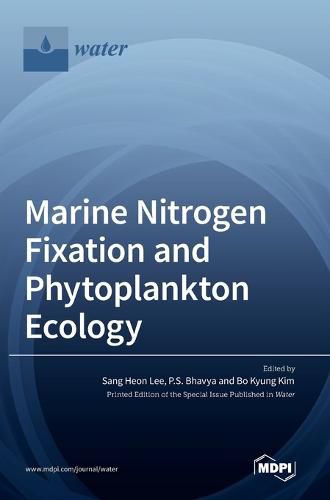Readings Newsletter
Become a Readings Member to make your shopping experience even easier.
Sign in or sign up for free!
You’re not far away from qualifying for FREE standard shipping within Australia
You’ve qualified for FREE standard shipping within Australia
The cart is loading…






This title is printed to order. This book may have been self-published. If so, we cannot guarantee the quality of the content. In the main most books will have gone through the editing process however some may not. We therefore suggest that you be aware of this before ordering this book. If in doubt check either the author or publisher’s details as we are unable to accept any returns unless they are faulty. Please contact us if you have any questions.
Many oceans are currently undergoing rapid changes in environmental conditions such as warming temperature, acidic water condition, coastal hypoxia, etc. These changes could lead to dramatic changes in the biology and ecology of phytoplankton and consequently impact the entire marine ecosystems and global biogeochemical cycles. Marine phytoplankton can be an important indicator for the changes in marine environments and ecosystems since they are major primary producers that consolidate solar energy into various organic matter transferred to marine ecosystems throughout the food-webs. Similarly, the N2 fixers (diazotrophs) are also vulnerable to changing environmental conditions. It has been found that the polar regions can be introduced to diazotrophic activity under warming conditions and the increased N availability can lead to elevated primary productivity. Considering the fundamental roles of phytoplankton in marine ecosystems and global biogeochemical cycles, it is important to understand phytoplankton ecology and N2 fixation as a potential N source in various oceans. This Special Issue provides ecological and biogeochemical baselines in a wide range of geographic study regions for the changes in marine environments and ecosystems driven by global climate changes.
$9.00 standard shipping within Australia
FREE standard shipping within Australia for orders over $100.00
Express & International shipping calculated at checkout
This title is printed to order. This book may have been self-published. If so, we cannot guarantee the quality of the content. In the main most books will have gone through the editing process however some may not. We therefore suggest that you be aware of this before ordering this book. If in doubt check either the author or publisher’s details as we are unable to accept any returns unless they are faulty. Please contact us if you have any questions.
Many oceans are currently undergoing rapid changes in environmental conditions such as warming temperature, acidic water condition, coastal hypoxia, etc. These changes could lead to dramatic changes in the biology and ecology of phytoplankton and consequently impact the entire marine ecosystems and global biogeochemical cycles. Marine phytoplankton can be an important indicator for the changes in marine environments and ecosystems since they are major primary producers that consolidate solar energy into various organic matter transferred to marine ecosystems throughout the food-webs. Similarly, the N2 fixers (diazotrophs) are also vulnerable to changing environmental conditions. It has been found that the polar regions can be introduced to diazotrophic activity under warming conditions and the increased N availability can lead to elevated primary productivity. Considering the fundamental roles of phytoplankton in marine ecosystems and global biogeochemical cycles, it is important to understand phytoplankton ecology and N2 fixation as a potential N source in various oceans. This Special Issue provides ecological and biogeochemical baselines in a wide range of geographic study regions for the changes in marine environments and ecosystems driven by global climate changes.